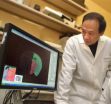Used coffee grounds are a rich source of healthful antioxidants
2013-01-09
(Press-News.org) To plant food, insect repellant and other homespun uses for spent coffee grounds, scientists are adding an application that could make the gunk left over from brewing coffee a valuable resource for production of dietary supplements. Their new report in ACS' Journal of Agricultural and Food Chemistry concludes that used coffee grounds are a rich source of healthful antioxidant substances.
Maria-Paz de Peña and colleagues explain that people around the world drink millions of cups of coffee every day, generating about 20 million tons of used grounds annually. Although some spent coffee grounds find commercial use as farm fertilizer, most end up in trash destined for landfills. Coffee itself is a rich source of healthful antioxidants. De Peña's team wondered about the amount of antioxidants that remained in used coffee grounds from different coffee-making methods.
They found that filter, plunger and espresso-type coffeemakers left more antioxidants in coffee grounds, while mocha coffeemakers left the least. Because filter and espresso coffeemakers are more common in homes and commercial kitchens, the authors report that most grounds are likely to be good sources of antioxidants and other useful substances. They note that after these compounds are extracted, the grounds can still be used for fertilizer.
###
The researchers acknowledge funding from the Spanish Ministry of Economy and Competitiveness.
The American Chemical Society is a nonprofit organization chartered by the U.S. Congress. With more than 164,000 members, ACS is the world’s largest scientific society and a global leader in providing access to chemistry-related research through its multiple databases, peer-reviewed journals and scientific conferences. Its main offices are in Washington, D.C., and Columbus, Ohio.
To automatically receive news releases from the American Chemical Society, contact newsroom@acs.org.
Follow us: Twitter Facebook
ELSE PRESS RELEASES FROM THIS DATE:
2013-01-09
URBANA – What are you doing to keep your relationship alive? A University of Illinois study highlights the importance of five relationship maintenance strategies that couples can use to preserve or improve the quality of an intimate relationship.
"Relationships are like cars in that you have do certain things to keep them running, especially when your goal is to strengthen and preserve your bond with your partner," said Brian Ogolsky, a U of I professor of human and community development.
To determine which factors are the most important in promoting healthy relationships, ...
2013-01-09
This press release is available in German.
Whether a quantum object behaves like a wave or like a particle depends (according to the Copenhagen interpretation) on the choice of measurement apparatus used for observing the system, and therefore on the type of measurement performed.
Anton Zeilinger's team of physicists at the University of Vienna and the Austrian Academy of Sciences has recently taken this phenomenon further than ever. Whether a certain photon behaves like a particle or like a wave depends on the measurement performed on a second photon. In the ...
2013-01-09
Mention magnets, and most people think of trivial applications of those pieces of metal, like holding family photos and reminder notes on the refrigerator. An article on magnets in the current edition of Chemical & Engineering News (C&EN), however, focuses on the critical role magnets play in the real world and the search for new materials to make them. C&EN is the weekly newsmagazine of the American Chemical Society, the world's largest scientific society.
In the article, C&EN Senior Correspondent Mitch Jacoby explains that magnets are crucial to an enormous number of ...
2013-01-09
New Rochelle, NY, January 9, 2013—More than 85,000 synthetic chemicals are registered for commercial use with the U.S. Environmental Protection Agency (EPA), and only about half of those produced in large quantities are tested for their potential toxic effects on humans. Children are particularly vulnerable to environmental toxins and a detailed look at how and why, and what can be done to protect children's health, is presented in a two-part article published in Alternative and Complementary Therapies from Mary Ann Liebert, Inc., publishers. The articles are available ...
2013-01-09
Tree seeds, rather than biomass or fuel crop plants, could represent an abundant source of renewable energy, according to research published in the International Journal of Automotive Technology and Management. The study suggests that seeds from the Indian mahua and sal trees have almost as good a thermal efficiency as biodiesel but would produce lower emissions of carbon monoxide, waste hydrocarbons and NOx (nitrogen oxides).
Sukumar Puhan of the GKM College of Engineering and Technology and colleagues N. Vedaraman and K.C. Velappan of the Central Leather Research Institute, ...
2013-01-09
PITTSBURGH—Self-moving gels can give synthetic materials the ability to "act alive" and mimic primitive biological communication, University of Pittsburgh researchers have found.
In a paper published in the Jan. 8 print edition of the Proceedings of the National Academy of Sciences, the Pitt research team demonstrates that a synthetic system can reconfigure itself through a combination of chemical communication and interaction with light.
Anna Balazs, principal investigator of the study and Distinguished Professor of Chemical and Petroleum Engineering in Pitt's Swanson ...
2013-01-09
WINSTON-SALEM, N.C. – Jan. 9, 2013 – New research from Wake Forest Baptist Medical Center shows that patients suffering from aggressive brain tumors can be effectively treated with smaller radiation fields to spare the rest of the brain and preserve cognition.
"For patients with glioblastoma, we now know we can safely and effectively treat them with smaller radiation fields to spare the rest of their normal brain," said lead investigator Michael D. Chan, M.D., assistant professor of radiation oncology at Wake Forest Baptist. "That's important because it lessens the symptoms ...
2013-01-09
Alexandria, Va.–January 9, 2013– America Speaks, Volume 13, a compilation of public opinion polls commissioned by Research!America, features timely data about Americans' views on issues related to biomedical and health research. A majority of Americans (72%) say the new Congress and the President should take action to expand medical research within the first 100 days of the 113th Congress. Public support for increased government spending on medical research holds particular relevance as Congress considers whether to further delay, eliminate or permit "sequestration," a ...
2013-01-09
When researchers at Moffitt Cancer Center and colleagues conducted a random telephone survey among blacks, whites and Hispanics in New York, Baltimore and San Juan, Puerto Rico, they found that Hispanics are nearly twice as likely to report that fear of being used as a "guinea pig" and lack of trust in medical professionals contribute in being unwilling to participate in cancer screenings. The researchers concluded that health care providers need to do a better job of instilling trust and dispelling certain fears, particularly among Hispanics, to improve cancer screening ...
2013-01-09
AUGUSTA, Ga. – As we age, it just may be the ability to filter and eliminate old information – rather than take in the new stuff - that makes it harder to learn, scientists report.
"When you are young, your brain is able to strengthen certain connections and weaken certain connections to make new memories," said Dr. Joe Z. Tsien, neuroscientist at the Medical College of Georgia at Georgia Regents University and Co-Director of the GRU Brain & Behavior Discovery Institute.
It's that critical weakening that appears hampered in the older brain, according to a study in ...
LAST 30 PRESS RELEASES:
[Press-News.org] Used coffee grounds are a rich source of healthful antioxidants


